I have built an application, which is LIVE in beta, and I am now trying to optimize it's performance. I have a case, where there is a table with images and I noticed that the images keep flickering, which made me look under the hood and I noticed that the DOM keeps refreshing. Refreshing as in, nothing changes, but it keeps deleting and re-adding itself a few times a second.
I figured, I would first log myself into the ngOnChanges(_:SimpleChanges) function, but nothing runs into the console.log from there, meaning that the component itself has not changed, but for some reason, it deems it necessary to refresh it's DOM.
I'm just wondering, how can I debug this and know, what is causing the component to refresh it's DOM?
Maybe some tools would help? I tried Augury, but that doesn't seem to help with performance issues debugging.
PS. Rendering the comopnent in
changeDetection: ChangeDetectionStrategy.OnPush
mode helps a bit (Still don't understand, why it helps, if OnChanges never runs)... But it does not fully eliminate the DOM refreshing at random moments.
